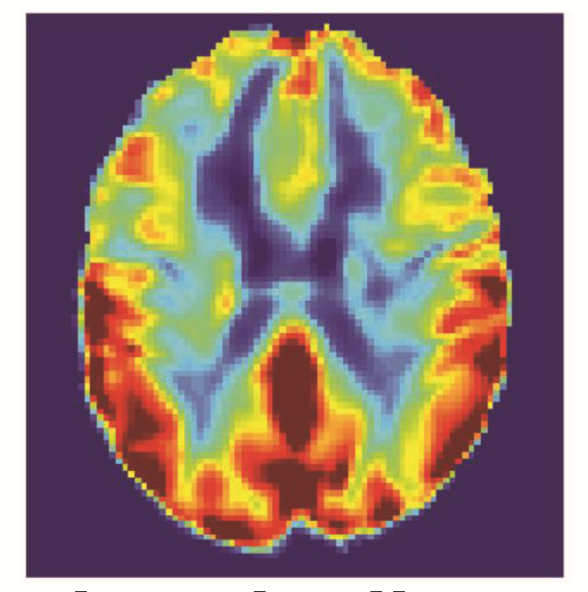Johns Hopkins School of Medicine
The Johns Hopkins site is focused on an imaging kit referred to as cerebrovascular reactivity (CVR), which provides an index of the brain blood vessel’s dilation ability. CVR is expected to inform the health of the fundamental unit of blood supply regulation in the brain, known as the neurovascular unit. The neurovascular unit is responsible for distributing and regulating blood supply across different parts of the brain. Data from the UH2 phase of our study revealed that whole-brain CVR was lower in the impaired compared to the normal group. After adjusting for CSF Aβ42 and tau, higher whole-brain CVR was associated with better performance on the MoCA and with a global composite cognitive score. When comparing the CVR marker with Fazekas score based on white-matter-hyperintensities and Vascular-Risk-Score in a single regression model predicting the MoCA, only CVR revealed a significant effect, while the other two measures were not significant. These findings suggest that CVR is associated with cognitive performance independent of AD pathology and it may be a useful biomarker for evaluating cognitive impairment related to vascular disease in older individuals.
In the UH3 phase of the project, the JHU team is leading the validation of the CVR kit by collecting CVR data across five sites in the MarkVCID Consortium and testing the potential of CVR as a susceptibility/risk biomarker with the primary use of stratifying patients for clinical trial based on probability to progress to dementia. The JHU site is also supporting the validation of kits proposed by other sites by collecting data and performing analysis. Specifically, the JHU site aims to recruit 85 elderly participants from outpatient clinics and community with a range of clinical diagnosis including mild dementia, mild cognitive impairment, and cognitively normal. Our cohort will be enriched for vascular risks such as diabetes. MRI, blood samples, optical coherence tomography (OCT) angiography, and clinical and neuropsychological data will be collected. In a subset of the participants, cerebrospinal fluid will also be obtained. These data will be used to support a range of kits in the MarkVCID consortium such as white matter hyperintensities, free-water content, peak skeletonized mean diffusivity, and plasma-based endothelium kits. Additionally, the JHU site is also participating in a series of instrumental validation efforts including inter-rater reliability, test-retest reproducibility, and inter-site repeatability.
Investigators Information
Professor of Radiology and Radiological Science
Johns Hopkins University School of Medicine

Professor of Neurology
Director of Cognitive Neuroscience
Johns Hopkins University School of Medicine





